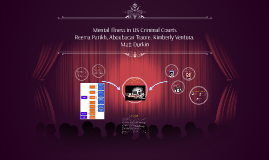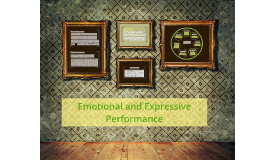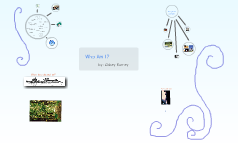Psych Presentation
Transcript: “In terms of musical performance, for example, it is well established that a musician’s mental image of a melody directs how he or she will actually perform it (e.g., Clarke, 1993; Gabrielsson, 1999; Krumhansl, 1992; Woody, 1999). Thus, a teacher may talk at length about treating the melody differently and even model it repeatedly, but until there is a change in the student’s internal representation of the melody (e.g., what it should sound like), there is no reason to expect a reliable change in performance.” Woody 2006. Brenner, Brenda & Strand, Katherine (2013). A Case Study of Teaching Musical Expression to Young Performers. “Research has confirmed that musicians consider the development of expressive abilities to be an important-if not the most important- part of practice (Kostka, 2002; Lindstrom et al., 2003; Woody, 2000).” (Woody, 2006) "If working with a developing musician, a teacher who asks for a melody to be performed “like liquid velvet” might do well to provide a model of what that sounds like, then explicitly direct attention to the salient musical properties of that model.” Instructional Techniques! Instructional Approaches Expressive Performance- communicating emotions, playing to an audience (Van Zilj & Luck, 2012) “Attention to performer-felt emotion also seems to have an established place in the expressive training of student musicians. Although a few subjects in this study expressed a clear preference for concrete musically based instruction (e.g., “expression has to be translated into technical terms rather than adjectives”), the majority of respondents seemed accustomed to being taught with feeling-oriented terminology.” Broomhead, Paul (2006). A Study of Instructional Strategies for Teaching Expressive Performance in the Choral Rehearsal. "(a) spend more time playing than talking or listening, (b) take advantage of opportunities outside of class to teach some historical and theoretical aspects of the work, and (c) introduce music history and theory according to student readiness." "Research conducted by Persson (1193, 2001) and Linstrom et al. (2003) suggests that musicians seem to be of the opinion that a performer has to experience certain emotions in order to be able to perform in an expressive way." (Van Zijl and Sloboda, 2010) “lessons were rarely guided by explicit goals, tasks or systematic teaching patterns” Emotional Performance- feeling emotions while performing (Van Zijl and Sloboda, 2011), more inwardly focused (Van Zijl and Luck, 2012) “Whereas in the case of emotional playing one was ‘just feeling and enjoying the music’, in the case of an expressive performance some awareness of the act of performing was required.” (Van Zijl and Sloboda, 2010) When teaching expressive performance, some musicians avoid verbal instruction directed at concrete musical properties (e.g. “in a phrase like this, it is appropriate to slow down at the end”) in favor of visual imagery and emotion-based metaphorical language (Barten, 1998; Davidson, 1989; Laukka, 2004; Sheldon, 2004). This approach may reflect a belief that musicians should create personal expressive renditions based on felt emotion (Laukka, 2004; Lindstr6m, Juslin, Bresin, & Williamon, 2003), rather than “simulating expressivity” through explicit planning of dynamics and tempo changes (Woody, 2000, p. 18). Why is this important? Experienced Emotions “Research indicates that movement characteristics and visual aspects are very important for the experience and judgement of a performance by an audience (e.g., Armontraut, Schutz & Kubovy, 2009; Davidson, 1993; Juchniewicz, 2008; Schutz, 2008).” (Van Zijl & Luck, 2012) Some Definitions! "Achieving a more expressive performance may often be as much a matter of attending to mindset as attending to musical skills.” "The teachers uniformly defined the processes by which a performer develops expressiveness as technical skill plus interpretation plus creativity or spontaneity" Hendricks, Karin S. (2010). Investing Time: Teacher Research Observing the Influence of Music History and Theory Lessons upon Student Engagement and Expressive Performance of an Advanced High School String Quartet. Broomhead, Paul, Skidmore, Jon B., Eggett, Dennis L., & Mills, Melissa M. (2012). The Effects of a Positive Mindset Trigger Word Pre-Performance Routine on the Expressive Performance of Junior High Age Singers. Woody, Robert H. (2000). Learning Expressivity in Music Performance: An Exploratory Study. Emotional and Expressive Performance Karlsson, Jessika and Juslin, Patrik N. (2008). Musical expression: an observational study of instrumental teaching. Van Zijl, Anemone G.W., & Luck, Geoff (2012). Moved through music: The effect of experienced emotions on performers’ movement characteristics. Psychology of Music, 41 (2), 175-197. DOI: 10.1177/0305735612458334. Van Zijl, Anemone G.W., & Sloboda, John (2010). Performers’ experienced emotions in the construction of expressive musical performance: An

















